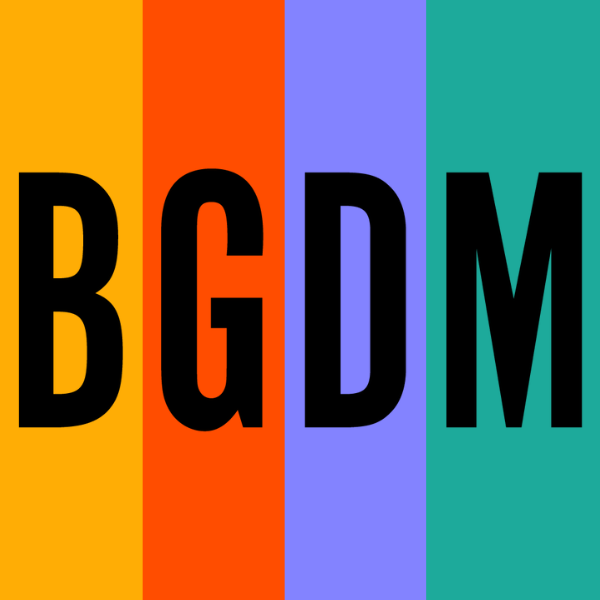Pictures and Panels with Portrait at Tribeca 2023
Bedatri D.Choudhury, Daquisha Jones Sol & Nivedita Das • September 7, 2023
This year during the Tribeca Film Festival, we partnered with Portrait to provide our members with craft panels, free headshots, and a chance to mingle and sign-up for the Portrait app during their official launch at the festival.
We're always looking to bring our members the latest and greatest, and this is why BGDM has partnered with Portrait. Portrait is an innovative new app that allows filmmakers — both above and below the line — to access, track, and find collaborators on the go. Founded by filmmakers for filmmakers, it’s a one-stop-shop to house your dynamic portfolio and stay up-to-date on industry events. We truly believe in Portrait’s power to provide support to our members careers and projects well into the future.
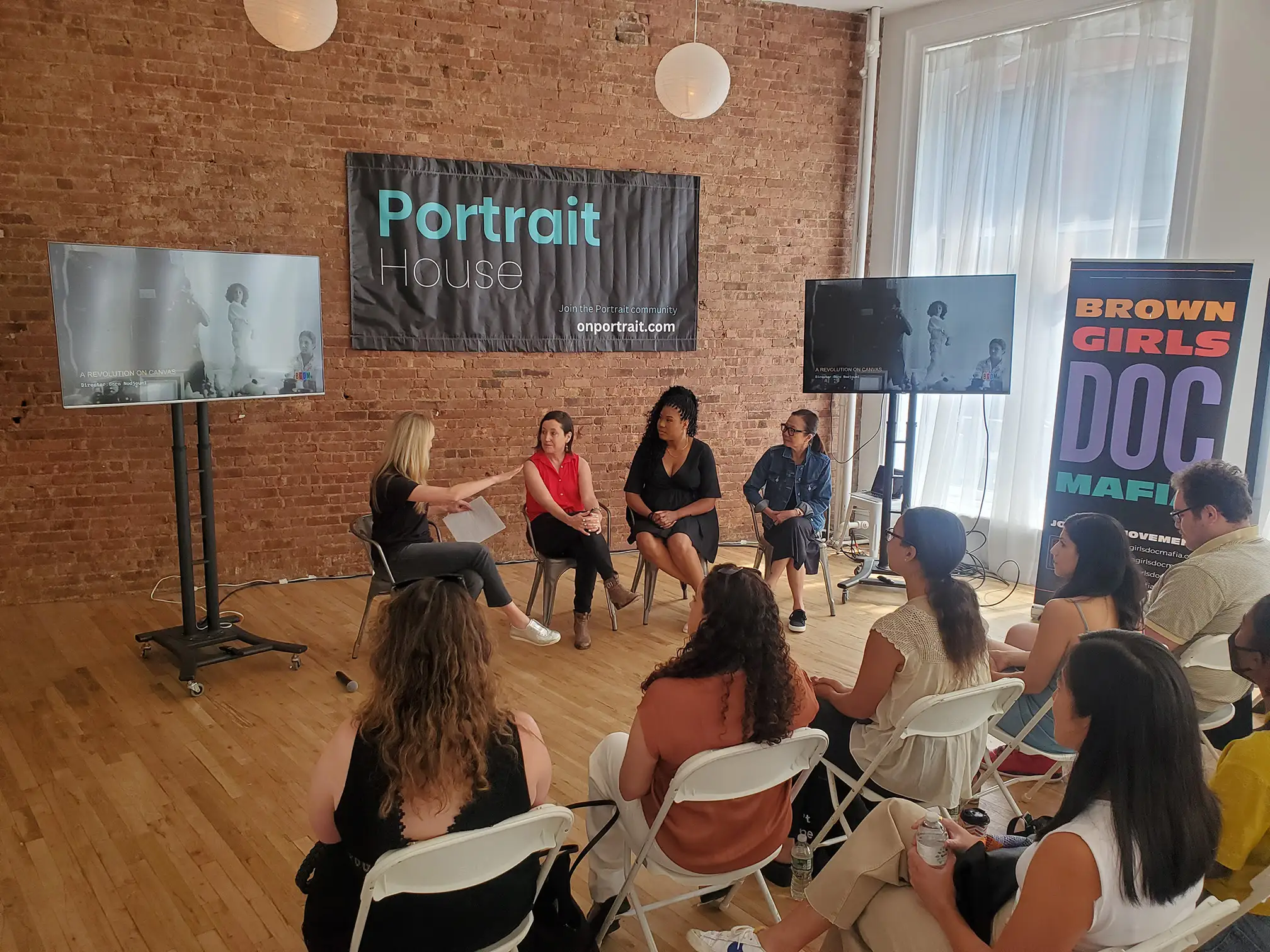
The day kicked off with a panel featuring Heather Courtney, Princess A. Hairston, Chelsea Hernandez, directors of the Tribeca-premiering documentary Breaking the News. They delved into topics ranging from the dynamics of making a film with three directors to encouraging their subjects to remain vulnerable throughout filmmaking, even when they were fatigued by the process. A transformative experience, they shared that their belief in “film as a vehicle for change” was renewed through this work.
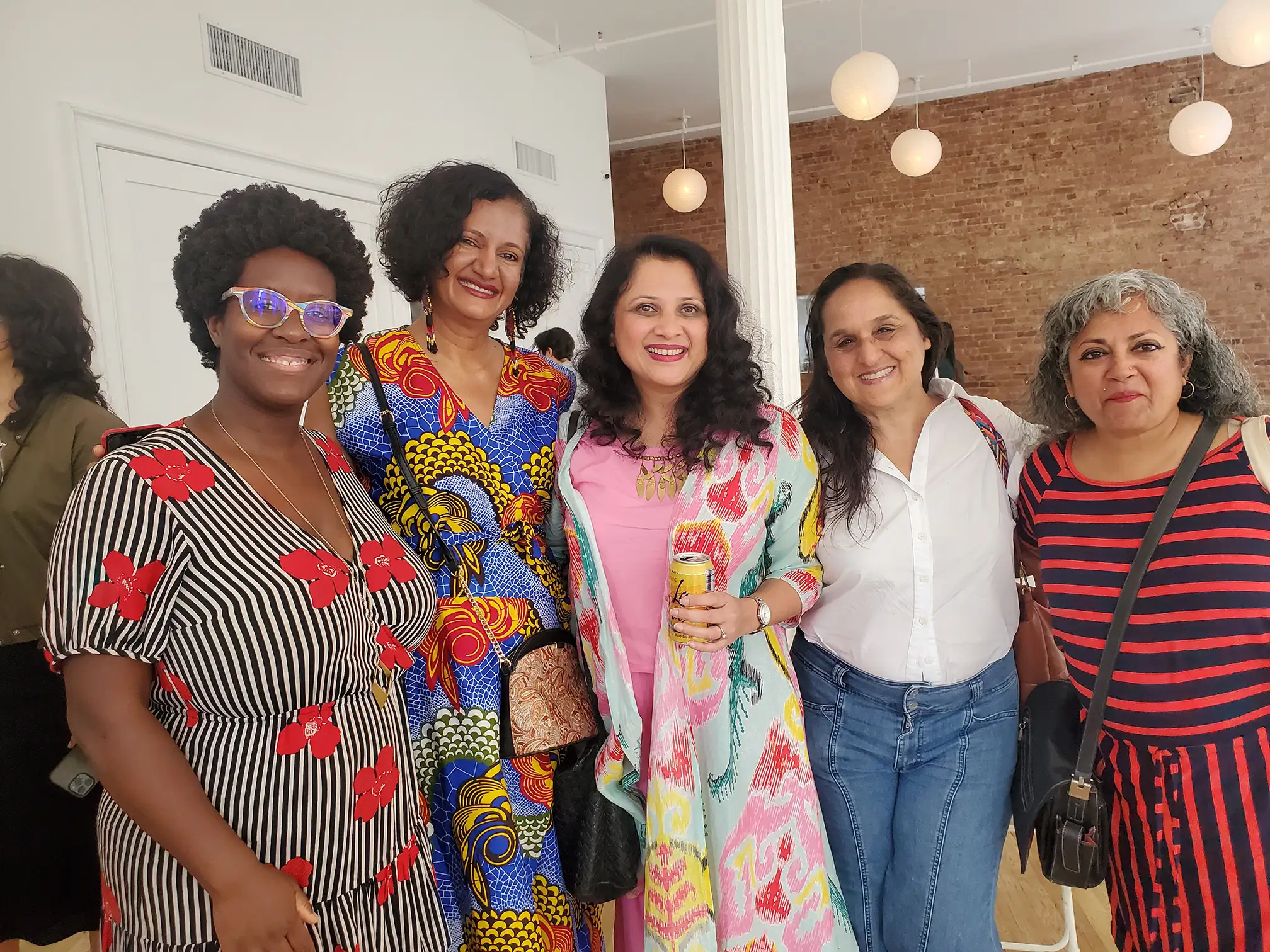
Iyabo Boyd, BGDM’s founder and Executive Director, kicked off the mixer and honored Mafiosa Sriyanka Ray, who recently passed. Bollywood music, Sriyanka’s favorite genre, floated through the room as members networked and gathered for a group photo.
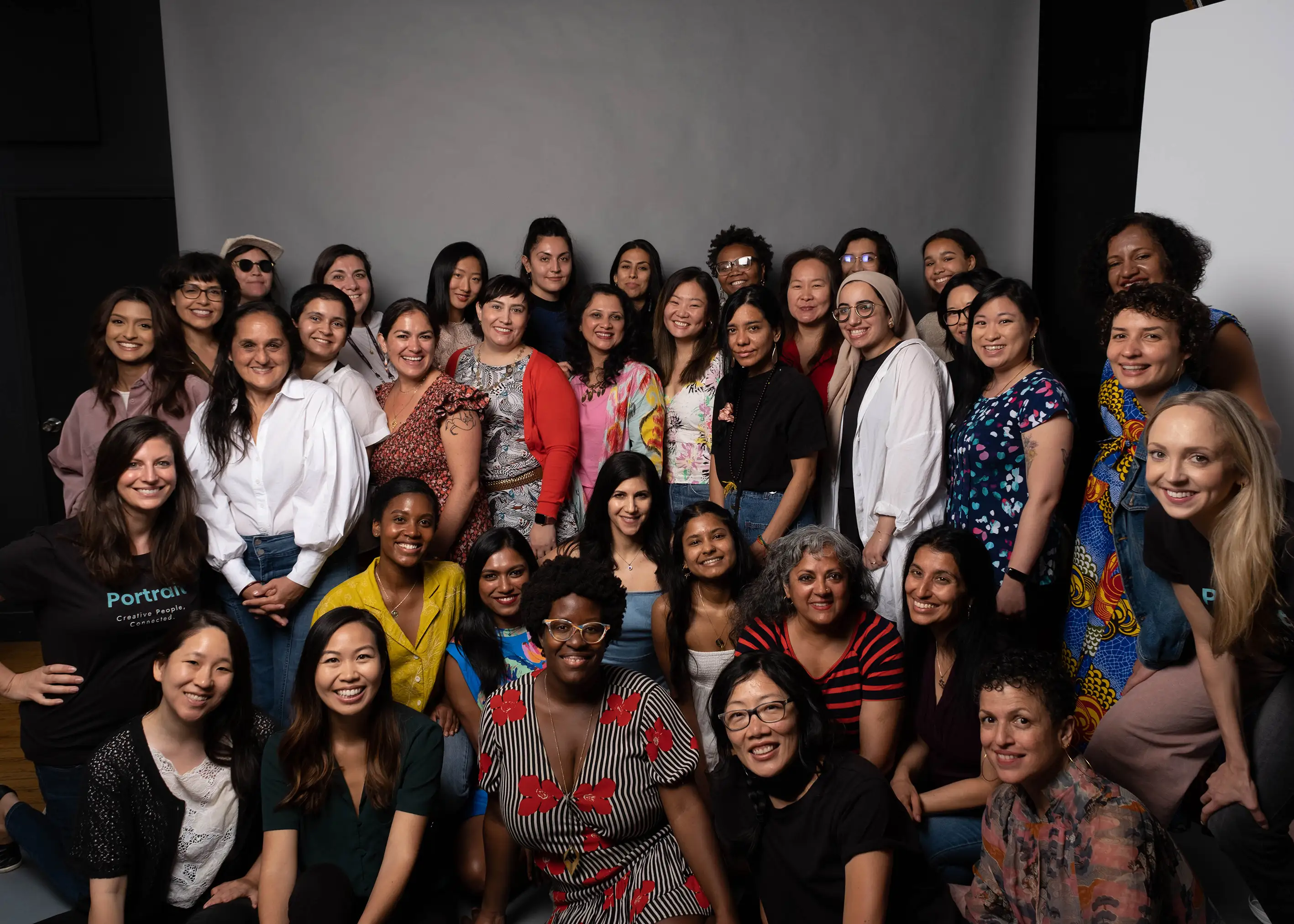
The second panel began shortly after, exploring the intricacies of using your family as and family history in your films, moderated by Bedatri Choudhury.
Navigating Intimate Personal Films with Immediate Family
Filmmakers Jude Chehab, Sara Nodjoumi, and Michèle Stephenson have all made films on their families at different stages of their careers. Stephenson has gone on to make other films after American Promise (2013), where she and co-director Joe Brewster follow their son's journey through a prestigious private school. Nodjoumi has made films on soccer players and reggae musicians in Jamaica, and produced a bunch more, before turning the lens on her artist father for her latest, A Revolution on Canvas. Chehab's Q, on her mother's relationship to Islam and a particular sect of believers, is her first.
“I thought everyone's mother was in a cult,” Chehab said. But when she realized that her mother's story was special, and had to be told by someone who'd have the empathy to portray the complexities of faith in all their beauty, she decided to make Q.
Nodjoumi, on the other hand, grew up knowing, “We're the freaks!” The daughter of two of Iran's most radical artists, she took to filming her parents in their old age so she could have a record of their lives before their memory and health got worse.
Stephenson realized that her son's story through school would be emblematic of the way the flawed education system in the country shapes the lives of young people of color. Through her son's position within a system, she wanted to assess the system.
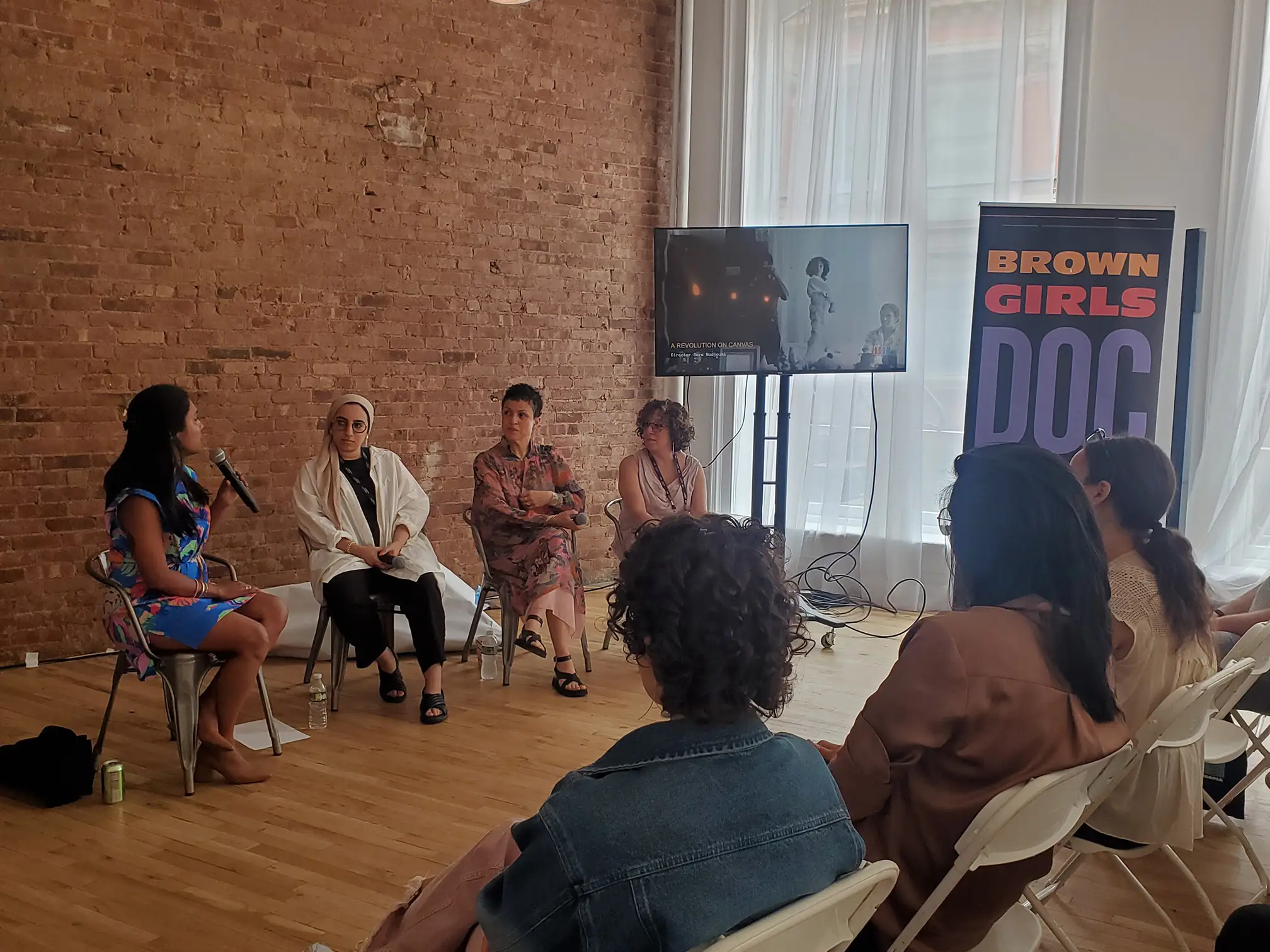
They all came to making films on their family members through different paths, but all the filmmakers agreed on leading the filmmaking process with kindness and empathy. Of course, there is a story to chase and a message to deliver, but these things can't happen at the cost of the dignity of the people being filmed.
While agreement, permissions, and contracts are necessary legal documents in the process of filmmaking, the filmmakers thought the duty of care for a filmmaker has to extend beyond that.
The ethics and rigor with which they make films about other people are not lost when they film with families. But on top of that, there is an additional need to do right by people they know and love. They all stressed on the need to strive for a complex depiction of the protagonist, even when they're family.
Interestingly enough, all the filmmakers collaborated with other family members in the making of their films. That, they said, helped them bridge the two extremes of making a film that was too personal and making a film that was forcing itself to attain a vague ideal of 'objectivity.'
With the right amount of humor to break the intensity of the conversation, you were left thinking of our panelists’ acknowledgment that films about their families have great potential to facilitate healing, especially self-acceptance — and that we have the right to tell our stories, too.
Bringing our community together is always something to celebrate, and at Tribeca, we did it big with our new friends at Portrait. Thank you to all our panelists, moderators and members who always bring the energy and insightful conversations. We can’t wait to see your new headshots on your Member Directory profiles and on the new Portrait app!


